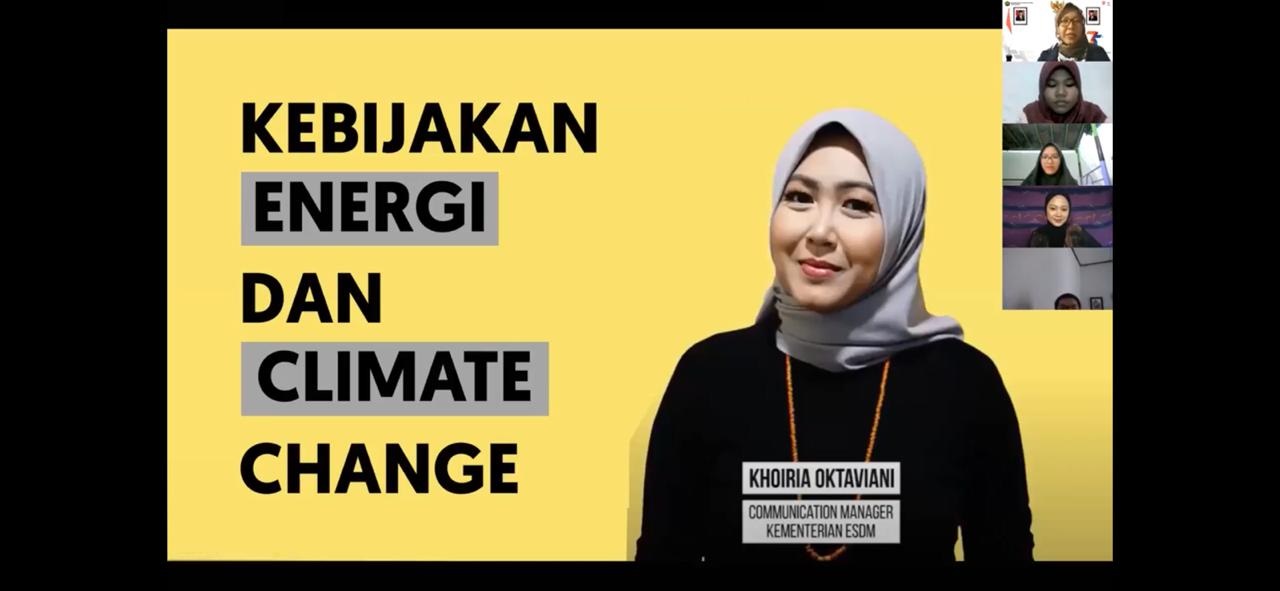After reviewing the relationship between humans and climate change, the second day of EnvironmenTalk 2020 discussed the energy sector and its strategy in tackling climate change. With the theme “Energy Strategy While Facing Climate Change”, this webinar presented two speakers who are experts in the energy sector, namely Khoiria Oktaviani, Communication Manager of the Ministry of Energy and Mineral Resources of the Republic of Indonesia, and Erina Mursanti, Program Manager of the Green Economy at Institute for Essential Services Reform (IESR).

First of all, Khoiria Oktaviani gave her views on the journey of energy transformation from the inception of the Kyoto Protocol, the international commitment about climate change. Furthermore, she elaborated on the Indonesian government’s energy policy in response to this issue, which is the national commitment to achieve the Paris Agreement targets. In other words, the government must reduce emissions from the energy used by Indonesia, to participate in keeping global temperatures below 2° C, and even strive for it to be 1.5° C.
According to Khoiria, the condition of energy consumption in Indonesia cannot be categorized as good. This is because most energy consumption in Indonesia are oil and coal. From the data presented, the consumption of petroleum is even greater than its production. “This condition is not environmentally friendly because excessive consumption of fossil fuels will release carbon dioxide and other greenhouse gases into the atmosphere,” she said. Therefore, the government considers that it is necessary to do the transition of energy, from fossil fuels to environmentally friendly energy. The Ministry of Energy and Mineral Resources has pursued the potential for new and renewable energy, including utilizing geothermal, water, bioenergy, solar, and wind as a solution in meeting the targets of the Paris Agreement while also addressing the problem of climate change.
In the second session, Erina Mursanti outlined the Green Economy strategy as an alternative to address this phenomenon. She explained that Green Economy has the same concept as the new and renewable energy, but what distinguishes it is the economic element in it. In outline, Green Economy is a strategy to balance economic growth with environmental protection. This is because the relationship between economic growth and environmental health is often incompatible. For example, economic growth has increased with industrialization, but the quality of the environment has decreased due to emissions released from energy consumption by industries. Therefore, the IESR recommends this green economy so that Indonesia can shift its economic system from an economy based on fossil materials to an economy based on renewable energy. (PT/SD)
Source: https://president.ac.id/p/148-news/detail/832-environmentalk-2020-day-two-energy-strategy-in-fac
